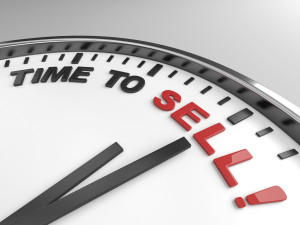
How to Value Your Business and Prepare It for Sale
Image via Pexels
By Courtney Rosenfeld
How to Value Your Business and Prepare It for Sale
Letting go of a business can be a challenge when you’ve invested time and energy to build it from scratch. Your persona may be so intertwined with the business that selling it seems impossible. But you have limited time and energy reserves. Therefore, it’s important to appreciate the need to pass on your business at the right time, to the right people and for the right consideration.
Signs That It’s Time To Sell
Many people don’t know when they need to sell a business unless an external party, such as a mentor, points it out. However, it’s important to remain open to certain cues. For instance, when you’ve professionalized the business by hiring the right people, you may no longer need to be there to supervise daily operations. If the business’s bottom line is good and future cash flows are projectable, you can sell the business for good value.
In other situations, the business may outgrow you. It may require expertise that’s beyond your ability for it to maximize its potential. Letting go of the business allows the injection of new ideas and energy to power the next stage of growth.
Preparing the Business for Sale
No matter the reason for selling the business, you want to get the maximum compensation for the value of the business. There are several ways to determine the value of a business:
- Assessing historical revenue and profits
- Projecting and discounting future cash flows
- Calculating the net assets of the business
- Valuing the size of the business’s current market share
The various approaches are likely to yield different valuations for your business. You may need to consult an expert to help you choose the most favorable approach. For instance, capital-intensive businesses may favor the assets approach, while a business in a fast-growing industry may find a future cash flow valuation approach to be better.
Business Paperwork
Regardless of the approach, proper records of the business are paramount. Business records are important for tax purposes, and they help prospective investors and buyers assess the true value of the enterprise.
If you don’t have comprehensive business records, start proper bookkeeping practices today. You can improve your internal processes through simple-to-use accounting tools. Sending your customers invoices for their purchases helps you gain insight into your sales volumes and trends. A free online invoice generator allows you to quickly customize an invoice for your business from pre-made templates with your own photos, logo, and text.
When preparing the business for sale, ensure your legal paperwork is in order. Have your Articles of Incorporation available, and renew all your licenses. If you have ongoing contracts with vendors and customers, ensure they’re in writing for the sake of business continuity.
Preparation Helps You Get Fair Compensation
Selling your business requires preparation, and completing the process may take more than a year. Talk to the right consultants to determine a provable valuation, and get your paperwork in order to help expedite the valuation and sale process.
Visit Bay Area Business Brokers for more information on how to prepare to sell your business. 408-246-3846.
Courtney started Gig Spark to be a resource and the first step for people who are looking to join the gig economy, either to supplement their income or as a way to fulfill their dreams of becoming an entrepreneur.
Read More
What Do Business Buyers Really Want?
When sellers get ready to put their businesses on the market, they often wonder what buyers are really looking for in an effort to make their businesses as attractive as possible. The answer to this question can seem mysterious when you are on the other side of the bargaining table. So, what are buyers typically thinking about when they make the decision about whether or not to purchase a business? It should come as no surprise that much of this is tied into earnings and stability.
Guarantees of No Surprises
Earnings that are sustainable are very attractive to buyers. After all, it allows them to know what to expect. Buyers can then factor in if they can advance the business in a way in which it would grow faster than the current pace. If not, they at least would have the confidence to know that the business will proceed at the same rate. Of course, no buyer would want to acquire a business only to find that it only had high earnings temporarily due to a one-time contract.
Accuracy of Information
Along the same line of avoiding surprises, buyers will want to verify the information they receive about a business. Anything involving past, present, or future legal issues will be scrutinized along with other issues, such as pending product returns. The due diligence process is when you can expect the buyer to really dig into the details of your business. You can expect that he or she will often do so with the assistance of an attorney and accountant.
Oftentimes, accountants or appraisers add back one-time expenses or non-recurring expenses. Buyers will want to look at the earnings and have proof of expenses that are non-recurring, such as fees for a lawsuit or heavy repairs to a building. Since this process inflates earnings, it can make it difficult for buyers to understand the actual earning potential of a business. Otherwise, those expenses would obviously throw off the true earning potential of the business.
In Closing
These are just a few of the critical considerations made by business buyers when looking at a potential acquisition. There are numerous other considerations that a buyer will make and it is important to be prepared to address those questions and potential concerns a buyer may have up front, or they will quickly lose interest and move on to other potential acquisition opportunities. Put yourself in the shoes of a potential buyer and think about the kinds of assurances you would want before buying a business.
Working with a Business Broker or M&A Advisor can be tremendously beneficial in this regard. These professionals have worked with many buyers in the past, and therefore easily see things from a buyer’s point of view. They will not only be able to help you get prepared up front when buyers begin looking at your business, but easily identify and point out areas of concern that a potential buyer may have in order to keep the journey to closing on track.
Copyright: Business Brokerage Press, Inc.
The post What Do Buyers Really Want? appeared first on Deal Studio – Automate, accelerate and elevate your deal making.

Are you a “Baby Boomer” Business Owner?
What is so special about “Baby Boomer” business owners? Well, there are a lot of them. It is estimated 52 percent of businesses are owned by people between 50 and 88 years of age. This equates to 9 million businesses in the United States. Put it another way, a business owner is turning 65 every 57 seconds.
So, why is this important? Typical of most business owners, the value of their business amounts to 50 to 75 percent of their net worth (if not more); the remainder in personal real estate and financial investments. Ordinarily, the business owner has only one chance to monetize his or her largest asset through the sale of the business.
It is estimated that 11,000 people are turning 65 years old every day, with this trend continuing for the next 18 years. Being that many of these Baby Boomers are also business owners, one would suspect that every year for the next two decades more and more business owners will be wanting to sell their businesses to cash out and fund their retirements. These businesses amount to some $10 trillion worth of assets.
Yet while more and more businesses go up for sale, the audience of buyers is decreasing. Today, the highest segment of business buyers is the same Baby Boomers in the age range of 55 to 64 years old. The 80 million millennials in the U.S. make up a larger demographic, though their abilities to purchase these businesses are quite low.
Applying the law of supply and demand, there is going to be a growing inventory of businesses for sale each year, while the number of qualified buyers is decreasing each of those years. The law of supply and demand would suggest there will be pricing pressure on these businesses. In addition, overall only 1 out of 4 businesses actually sell after being put on the market; however, the success rate increases to 1 in 3 for businesses with sales of $10 million, and the sale success rate grows to 1 in 2 for businesses with sales greater than $10 million.
Now What?
The PriceWaterhouseCoopers accounting firm estimates more than 75 percent of business owners have done little planning for their single biggest financial asset. It is sad to say, but business owners spend more time planning their next vacation than planning for their exit into retirement.
Business owners should start the exit planning process today. Serious consideration should be given to creating a timeframe to place the business in the best position to be sold at the highest possible valuation.
Fortunately, the window of opportunity is quite good. Current conditions of rock bottom interest rates, low inflation, historically low capital gain taxes and overall high business valuations make this an ideal time to sell a business. In real estate it is all about “location, location, location,” whereas in business it is all about “timing, timing, timing.” Now is the time to cash in.
Exit planning, however, is a process that requires a significant amount of work. Most important, business owners need to assemble a team of professional advisors to assist them in this process. The team may consist of all or some of these professionals: a business intermediary firm, CPA/accountant, business attorney, financial planner, investment advisor, insurance advisor, valuation specialist, investment banker, banker and business consultant.
Using the analogy of an actual roadmap, this process can be broken down into five exits:
Exit 1: Making the Decision to Sell
Exit 2: Exit Planning Process
Exit 3: Maximizing Business Value
Exit 4: Preparing the Business for Sale
Exit 5: The Deal Process
The actual Planning Process often includes the following seven steps:
1. Identify Exit Objectives
2. Quantify Business & Personal Financial Resources
3. Maximize & Protect Business Value
4. Ownership Transfer to Third Parties
5. Ownership Transfer to Insiders
6. Business Continuity
7. Personal Wealth & Estate Planning
There is no time better than right now to start planning an exit, whether that is tomorrow, next month, next year or the next decade. Just be careful not to miss your EXIT…else you will hear your GPS (or significant other) say, “when possible turnaround” or as my GPS would say, “you idiot, you missed your exit…proceed on this road for another 20 miles.”
This article appeared in the November 2015 edition of Traverse City Business News.
Read More
